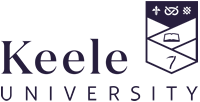Artificial Intelligence and Machine Learning for MRI Magnet Manufacture
Artificial intelligence (AI), machine learning (ML) and the broader umbrella of (big) data science, are buzz words and have helped contribute to the global successes of companies like Google and Amazon. The data they collect using our Internet searches and Voice assistants (eg Alexa) are used to make predictions about our likes and dislikes, to make recommendations to us, to sell us products and services as well as to improve the efficiency of their own businesses. Given this success, it is no surprise that AI and ML algorithms (eg neural networks) have attracted the interest of engineering companies across the globe in order to use data they are already collecting to improve their products, their manufacturing processes and the services they provide to their customers.
This CASE award EPSRC PhD project will focus on AI/ML with the scope to make a real impact on the manufacturing process of a global leading company in the manufacture of MRI scanners, namely Siemens Healthineers.
The student will learn about the latest developments in AI/ML and apply these techniques to understand and improve the magnets, which form an integral part of the Siemens Healthineers’ MRI scanners. The aim is to understand which manufacturing processes, or circumstances, lead, in exceptional circumstances, to magnets that behave outside the normally expected performance parameters. Identification of suspected sensitivities in the magnet build from the ML analysis will be expected to be rolled in to changes within the factory. The successful applicant will be able to have a direct impact on the performance of MRI scanners produced by Siemens Healthineers.
This will be achieved through the following objectives:
1) To understand and to be able to apply the latest AI/ML algorithms to data science problems
2) To gain a good understand of the physical engineering processes in the manufacture and operation of MRI magnets.
3) To work effectively with software libraries, big data sets and to present results in an informative manner
4) To be able to compare the performance and access the quality of AI/ML predictions
5) To make recommendations based on AI/ML predictions to influence the design cycle of MRI magnets
6) To communicate ideas and results clearly on paper and in presentations to industrialists and the academic community
The ideal candidate will have a strong interest in AI/ML/Data science coupled with an excellent engineering/physics background. The student must be educated to at least a bachelor’s level in Engineering/Physics/Mathematics or Computer Science with preferably a 1st class honours degree or a high 2:1 classification. Students with additional experience, for example in the form of a masters degree or a year industry, are very much encouraged to apply.
Training in both AI/ML/Data science as well as MRI scanners will be provided, but existing expertise in computer simulation, programming, manufacturing is expected to be advantageous.
The student will be part of a collaborative team of other students and staff from Keele University and Swansea University working closely with Siemens Healthineers. The lead supervisor will be Dr Paul D. Ledger in the School of Computing & Mathematics, Keele University and will be co-supervised by Prof. Antonio J. Gil at College of Engineering, Swansea University and Dr Mike Mallett, Siemens Healthineers.
The student will have access to computing resources at Keele University.
For informal enquires related to this project please contact Dr Paul D. Ledger by email: [Email Address Removed]
For further information about Dr Ledger’s research see https://pdledger.wordpress.com and
https://www.keele.ac.uk/scm/staff/drpaulledger/
Please apply at:
https://www.keele.ac.uk/study/postgraduateresearch/studentships/artificialintelligenceandmachinelearningformrimagnetmanufacture/
Please quote FNS 2020-07 on your application.
It has a flexible start date from April 2021 or July 2021 onwards (start date of the project is subject to full approval of the funding)
Candidate profile
Qualifications, Experience and Skills (Essential)
The student must be educated to at least an undergraduate bachelor’s level in Engineering/Computer Science/Mathematics or Physics with upper 2.1 classification.
Experience with computer simulation and programming in MATLAB or Python.
Desirable
A 1st class undergraduate bachelor’s degree in Engineering/Computer Science/Mathematics or Physics.
A distinction in a postgraduate master’s degree in Engineering/Computer Science/Mathematics or Physics. Or equivalent masters.
Evidence of ability to under research work in the area of data science or related area

 Continue with Facebook
Continue with Facebook



